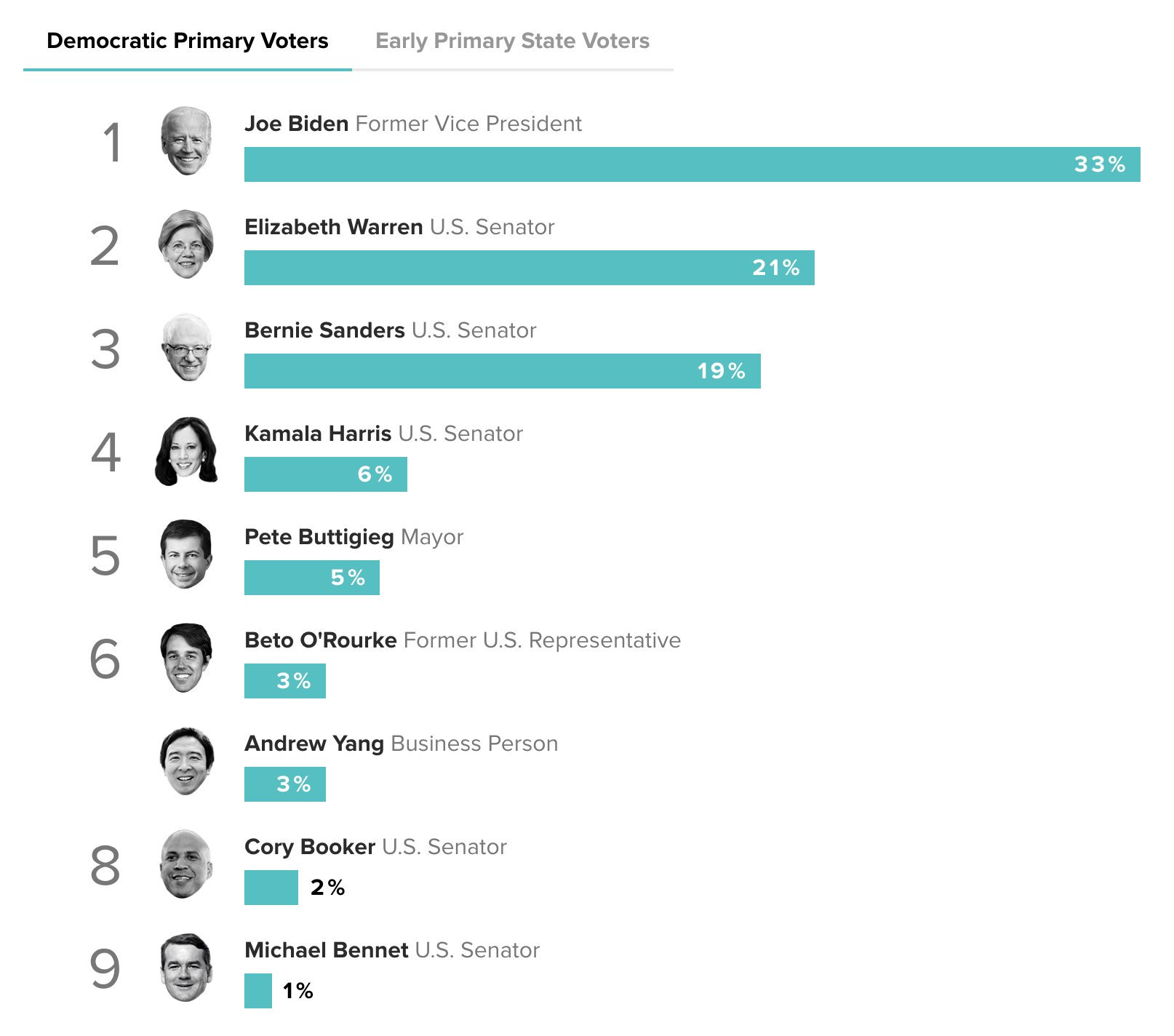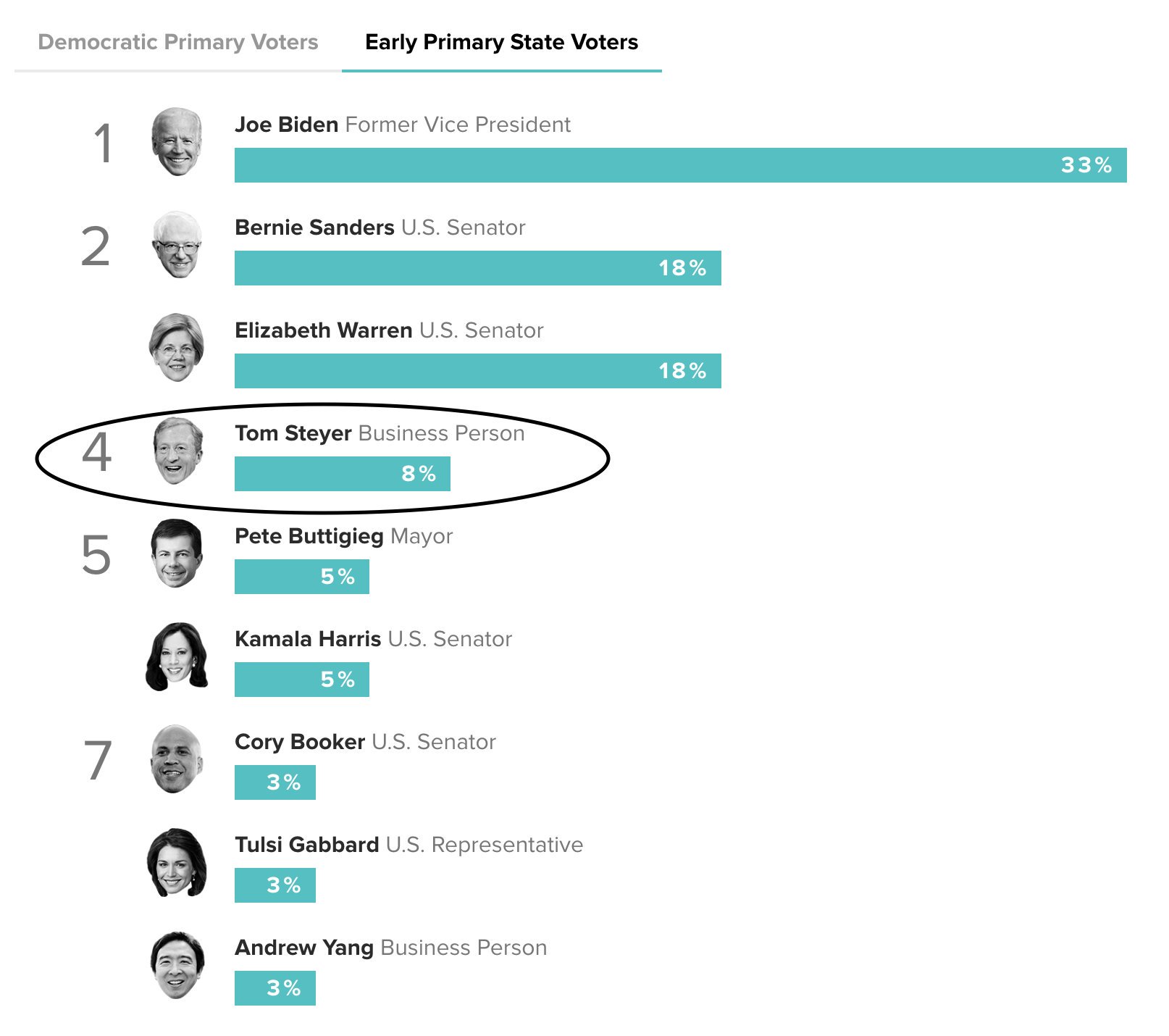Epistemic status: speculative
Andrew Yang understands AI X-risk. Tom Steyer has spent $7 million on adds in early primary states, and it has had a big effect:


If a candidate gets more than 15% of the vote in Iowa (in any given caucus), they get delegates. Doing that consistently in many caucuses would be an important milestone for outsider-candidates. And I'm probably biased because I think many of his policies are correct, but I think that if Andrew Yang just becomes mainstream, and accepted by some "sensible people" after some early primaries, there's a decent chance he would win the primary. (And I think he has at least a 50% chance of beating Trump). It also seems surprisingly easy to have an outsize influence in the money-in-politics landscape. Peter Thiel's early investment in Trump looks brilliant today (at accomplishing the terrible goal of installing a protectionist).
From an AI policy standpoint, having the leader of the free world on board would be big. This opportunity is potentially one that makes AI policy money constrained rather than talent constrained for the moment.

I think that's too speculative a line of thinking to use for judging candidates. Sure, being intelligent about AI alignment is a data point for good judgment more generally, but so is being intelligent about automation of the workforce, and being intelligent about healthcare, and being intelligent about immigration, and so on. Why should AI alignment in particular should be a litmus test for rational judgment? We may perceive a pattern with more explicitly rational people taking AI alignment seriously as patently anti-rational people dismiss it, but that's a unique feature of some elite liberal circles like those surrounding EA and the Bay Area; in the broader public sphere there are plenty of unexceptional people who are concerned about AI risk and plenty of exceptional people who aren't.
We can tell that Yang is open to stuff written by Bostrom and Scott Alexander, which is nice, but I don't think that's a unique feature of Rational people, I think it's shared by nearly everyone who isn't afflicted by one or two particular strands of tribalism - tribalism which seems to be more common in Berkeley or in academia than in the Beltway.